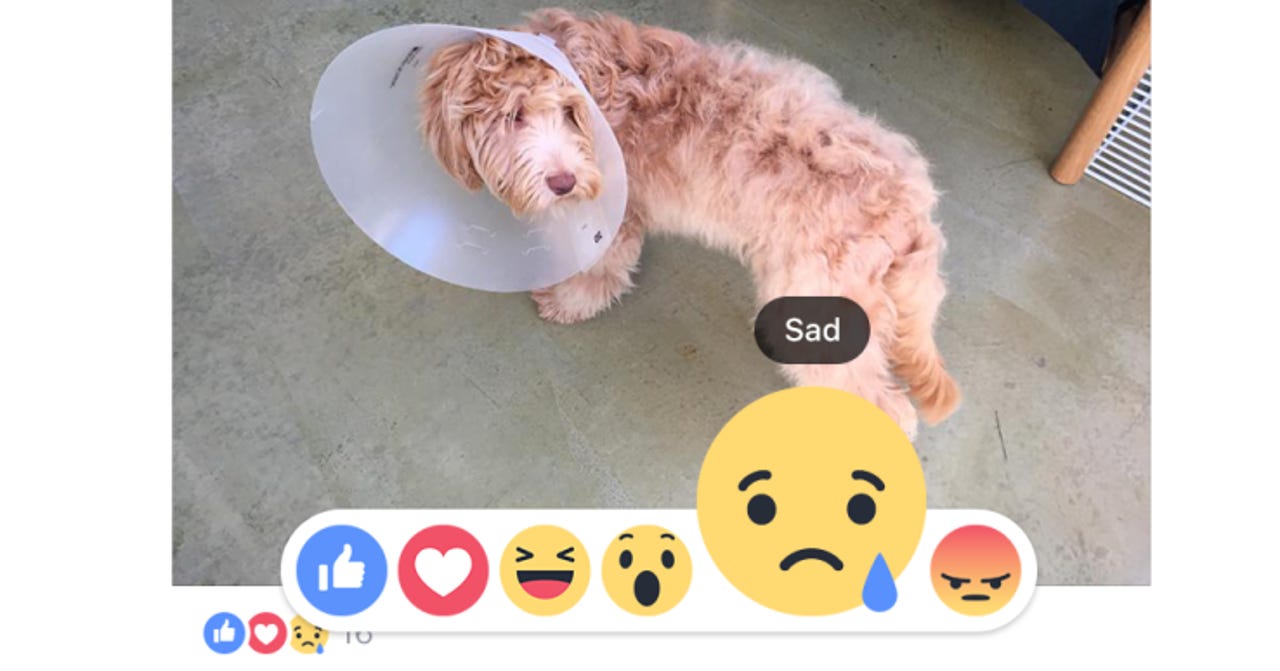'Wow': Facebook adds five Reactions to the Like button


Facebook said on Wednesday that its Reactions feature has now rolled out worldwide.
Reactions is basically an extension of Facebook's "Like" button and is designed to give users more emotional expression when commenting on or reacting to a friend's post.
Now instead of a basic thumbs up, users can choose between Love, Wow, Angry, Sad and Haha emoticons.
Featured
To add a Reaction on mobile, users must hold down the Like button to see the emoticon options. Desktop users have to hover over the Like button to see the Reaction image options.
The pop-up design was likely a calculated move by Facebook, as it gives users the option to use the extra Reactions, but doesn't clog up every post with five extra buttons.
The social network launched a pilot of Reactions last year in Ireland and Spain with users choosing between seven emoticons. Apparently "Yay" didn't make the cut for the official rollout.
"For more than a year we have been conducting global research including focus groups and surveys to determine what types of reactions people would want to use most," Facebook product manager Sammi Krug wrote in a blog post. "We also looked at how people are already commenting on posts and the top stickers and emoticons as signals for the types of reactions people are already using to determine which reactions to offer."
Krug said Facebook plans to pay close attention to user feedback to determine if the current batch of Reactions are the ones users actually want.
In terms of the impact the new Reaction buttons will have on Pages, that's still not totally clear. In a separate blog post, Krug said any click of a Reaction button will be treated as a Like, meaning Facebook will assume the user wants to see more of that type of content.
Over time the goal is to figure out how the different Reactions should be weighted differently by News Feed to pinpoint user preferences.
Should Reactions prove successful, Facebook's real win will be the data bonanza the feature yields. Facebook will have more data to gauge a user's mood, feelings about content and ultimately be able to model behavior and ads.